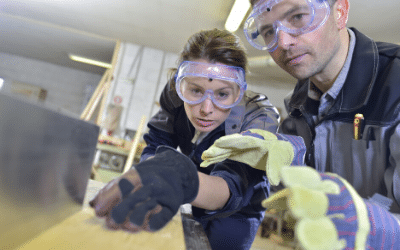
Help develop future talent for your business
Construction T-Levels are now available for the following areras of our sector:
- Design, surveying and planning
- Onsite construction with an occupational specialism in plastering which includes drylining
T-Levels are two-year courses with a 45 day industrial placement for 16 to 19 year olds. Designed with employers, each T-Level is an alternative to three A levels, and can lead to an accelerated apprenticeship. They also help young people develop the knowledge, attitude and practical skills to thrive in the workplace.
At the heart of each course, a 45-day industry placement will give you early access to the brightest talent entering your market. Employers that are interested in offering an industry placement, can get help to find a local college, school or training provider to partner with. They will support you at every stage of the industry placement so you can focus on getting the most out of your placement student.
Over the autumn, the Department for Education and SDN are hosting a series of online sessions to help employers explore, plan for, and host T-Level industry placements. They’ve started a new series to give employers a more in-depth understanding of placements for particular T-Levels. They’re also covering specific topics to support employers and their teams. Topics covered include:
- The role of the line manager and mentor in industry placements (27 October)
- Introduction to industry placements – supporting your workforce development (9 November)
- Hosting industry placements in construction roles (18 November)
- A longer two-hour industry placement workshop, to start planning for industry placements and talk with other like-minded employers (30 November)
You can find out more and register here
Candidates are available for work placement now, if you would like more information please see: https://www.tlevels.gov.uk/ If you need information, advice and/or guidance please call FIS on 0121 707 0077 or email info@thefis.org





